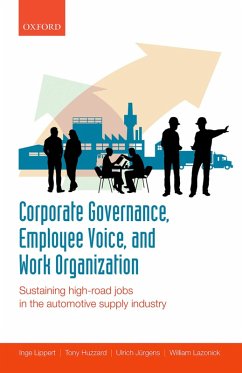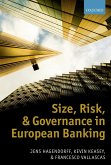Corporate Governance, Employee Voice, and Work Organization explores the dynamic relations between corporate governance, employee voice, and the organization of work in the automotive supply industry. It reports on research undertaken in three countries-Germany, Sweden, and the United States-that has sought to explore and compare historical patterns of the relationships between changing governance regimes, voice, and work at plant level in an era of financialization. It also explores the prospects for high-road, sustainable jobs in the sector. Three detailed case histories from each of the countries are presented which contrast companies facing three different levels of exposure to capital markets: companies relatively sheltered from stock markets; companies that are highly exposed to them; and thirdly companies owned by private equity firms. This design allows for analysis not just across different national contexts but also within them, and questions the usefulness of the 'varieties of capitalism' appraoch in understanding these differences. The cases show that governance compromises matter, that is, that recognising the role of employee voice in corporate governance regimes is essential in any comparative analysis and understanding of corporate governance.
Dieser Download kann aus rechtlichen Gründen nur mit Rechnungsadresse in A, B, BG, CY, CZ, D, DK, EW, E, FIN, F, GR, HR, H, IRL, I, LT, L, LR, M, NL, PL, P, R, S, SLO, SK ausgeliefert werden.









